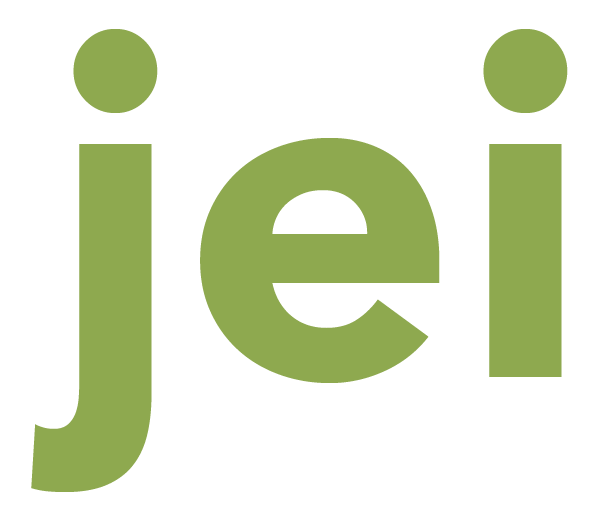NIGERIA & BENIN FEDERATION MEDIA4CHANGE
JEI supports Federation Media Teams in Nigeria and Benin. The teams are collectives of youth media makers from urban slums using media to make change in their communities, and are members of the Know Your City TV (KYC.TV) media collective — a group of of youth media makers from across the Slum/Shack Dwellers International network.
The Federation Media teams use storytelling to counter negative representations of informal settlements by media channels which fail to include community voices, perspectives, and realities. By creating windows into their worlds, told from their own perspective, Federation media teams are working to challenge dominant discourse about their communities, and reframe their relationship to their city’s identity and development plans.
“People look us with the eyes of ‘OK these people are criminals, they are hooligans, they destroy things…they don’t make life easy for the rich people.’ But ‘slum’ is just a word — it does not define us. We are actually great people, with great minds, with great dreams…”
- Ogungbamila Temitope, Nigerian Federation Media4Change
Nigerian Slum/Informal Settlement Federation Media4Change
The Nigerian Slum/Informal Settlement has media teams in both Lagos and Port Harcourt. Together, they have undertaken a range of ambitious storytelling projects that seek to change the perception of their communities and advocate on specific issues affecting their lives and livelihoods. Projects exist across an array of mediums — including oral histories, documentary photography and video projects, and narrative film production — and are distributed through online channels and physical exhibitions/screenings.
Legends of Lagos
The Legends of Lagos project is collaborative storytelling initiative by residents of Federation communities. It includes a feature film, a series of short documentaries, and an accompanying #InclusiveLagos portrait series telling the stories of community members from Lagos’ informal settlements. The project comes as an effort to reclaim the narrative of Lagos informal settlements — pushing back against negative stereotypes peddled about these communities and their residents, and raising awareness on specific barriers to their inclusion in the city’s development.
“Can you stay here? You cannot stay here. When night comes we don’t sleep. We’re not able to sleep. When we were evicted from Otodo Gbame community, this is where we set mosquito nets for our wives and the children they were nursing. What could we do?
When speedboats pass by, their wave hits our boats to the wall. We’re under threat of attack living under this bridge. When the attack is coming we don’t know. We’re not living like humans here. They [the Police] chased us till we got here.”
Lekki-Ikoyi Bridge, Lagos
#InclusiveLagos
Within the Legends of Lagos umbrella is also a feature-length narrative film project called The Legend of the Vagabond Queen of Lagos. The film is a collaboration between the Nigerian Slum/Informal Settlement Federation and a group of film professionals, and intends to actualize a radically co-creative production model where members of the communities in which the story is based are integrally involved in every aspect of the film’s production.
It's a bold vision that's been supported since its birth by the Sundance Institute's "Stories for Change Lab", and whose production will be funded by both Sundance and the World Cinema Fund. For more information on the project, the story it tells, and the process behind it’s creation, please visit the film’s web page.
Humans of Port Harcourt Portraiture Series
In Port Harcourt, the team has launched the Humans of Port Harcourt storytelling project aimed at pushing back on the negative stereotypes promulgated by the government and popular culture by creating space for waterfront residents to tell their own stories. Through environmental portraiture photography and probing interviews, the project publishes photos and narratives on Instagram and other platforms that tell the real stories of waterfront residents (see photos to the right). This project has the inspired the @legends.of.lagos instagram page (above), host to the Lagos Media Team’s #InclusiveLagos portraiture project.
Direct Advocacy Films
Along with more character-driven and narrative works, the Federation Media Team produce films that tackle specific issues facing affecting the lives and livelihoods of Nigeria’s urban poor, such as forced eviction, access to eduction, and attacks on the livelihoods of community members. One of these films, Undevelopment: Forced Evictions in Nigeria, took home first prize in the 2018 UrbaMonde CoHabitat International Film Contest.
Exhibitions and Screenings
Along with distributing content across social media channels, the teams display share their content through exhibitions and community screenings. Their photo exhibition Displacement & Dignity — documenting the months leading up to the final forced eviction of Otodo Gbame, a fishing community of 30,000 evicted in 2017 — has been shown at the Eko Atlantic hotel, the Tiwan Tiwa Festival, and the Lagos Theatre Festival.
The team has also put on a series of community screenings showing their work across urban poor communities in Lagos — using their media as a mobilization tool to build a stronger Federation.
La Federation D’habitants des Zones de Taudis / Bidonvilles au Benin
La Federation D’habitants de Zones de Taudis / Bionvilles de Republic de Benin is based in Cotonou, Benin. While the Federation there is younger than its Nigerian sister, the Benin media team is already producing powerful storytelling for change.
In August of 2019, they launched their Visages de Cotonou (Faces of Cotonou) portrait series — built in the image of @humans.of.ph and @legends.of.lagos — and have been able to curate a powerful array of portraits and voices to change the narrative of the informal settlements of Cotonou’s waterfronts.
Beyond this portrait series, they have co-created powerful video and portrait content (left) to advocate against an imminent forced eviction threat of the Cotonou waterfronts.


















